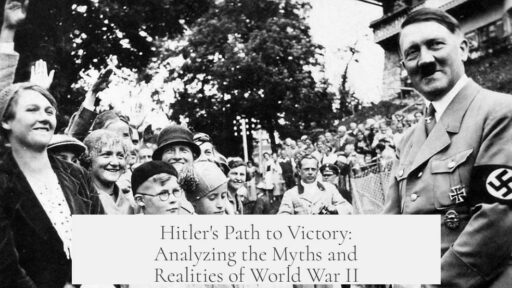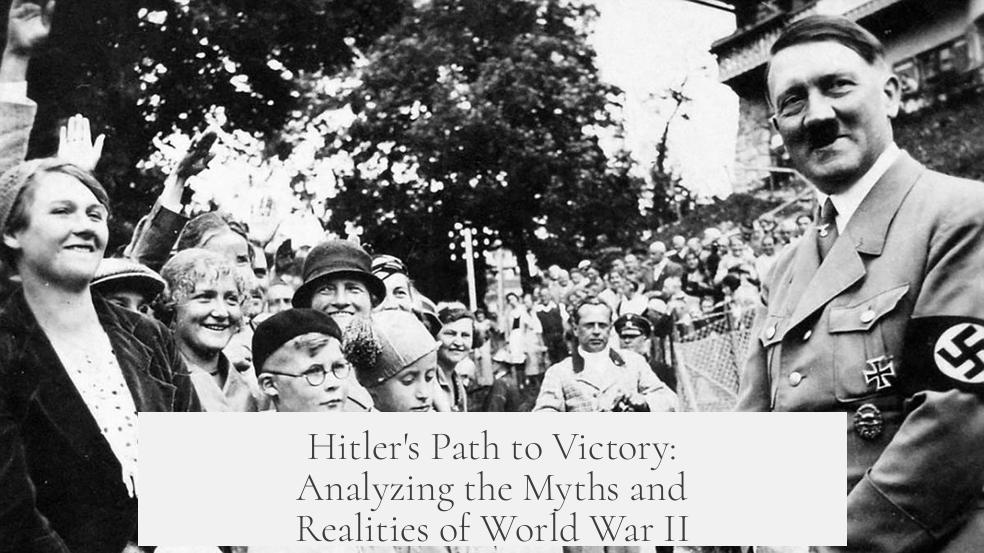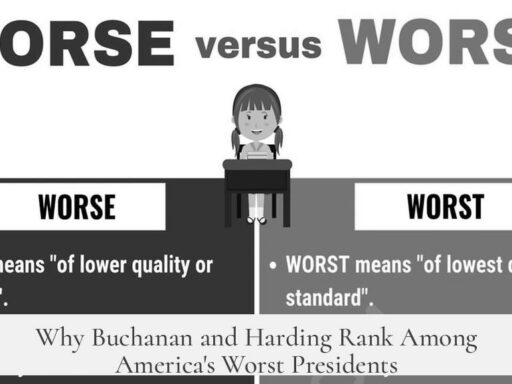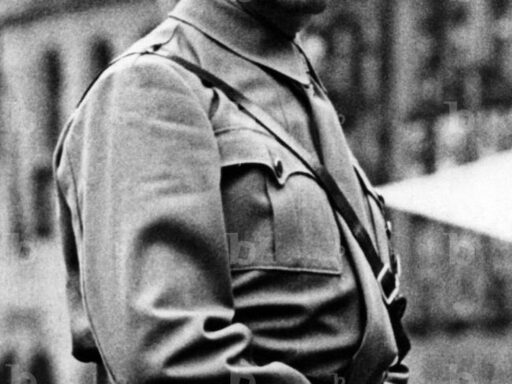Adolf Hitler was not actually very close to winning World War II despite some military successes early in the conflict. Several critical factors limited Germany’s ability to secure ultimate victory. These include the resilience of Britain, the vastness and resource advantage of the Soviet Union, the industrial and military power of the United States, strategic errors by the German leadership, and fundamental economic constraints.
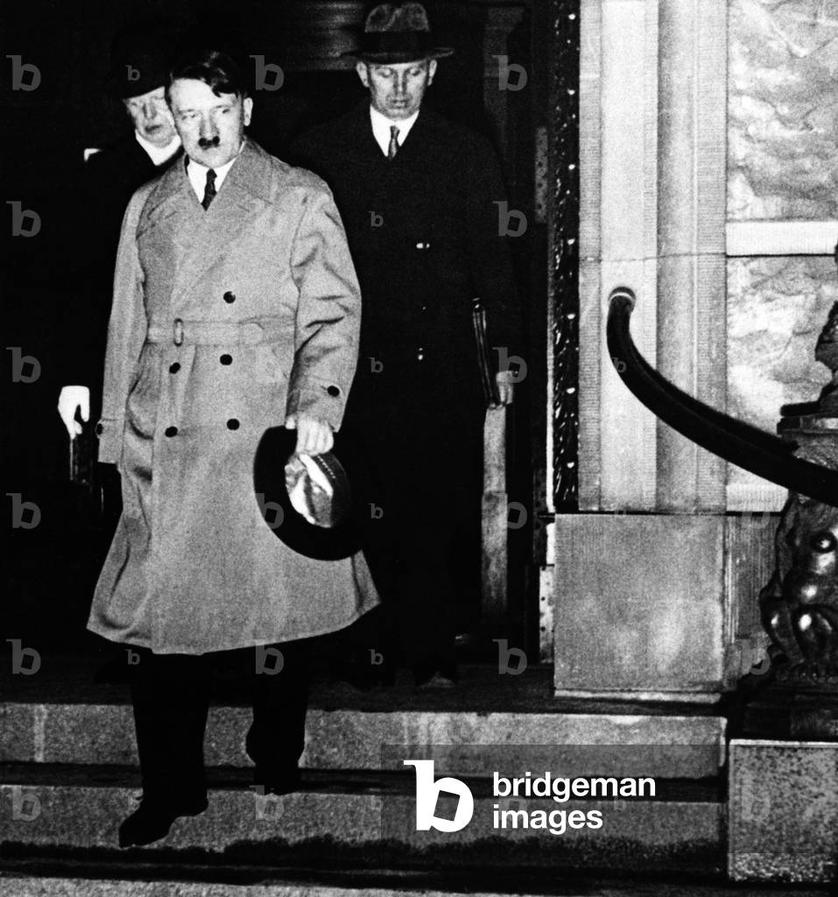
Hitler’s hopes for rapidly defeating Britain failed. The evacuation of Allied troops at Dunkirk in 1940 preserved a large part of Britain’s fighting force, allowing continued resistance. Even if the Luftwaffe had focused more effectively on RAF airfields, gaining air superiority was unlikely to lead to a successful German invasion. The Royal Navy maintained naval dominance, preventing Germany from gaining control of the seas necessary for a cross-channel invasion.
The failure to invade Britain meant that Germany faced a strong Allied foothold for the duration of the war. Despite early U-Boat offensives and bombing campaigns, Britain remained steadfast. German dominance of the Atlantic was never secured, and maintaining supply lines for campaigns in North Africa proved difficult due to British naval control. This limited Germany’s ability to project power effectively beyond continental Europe.
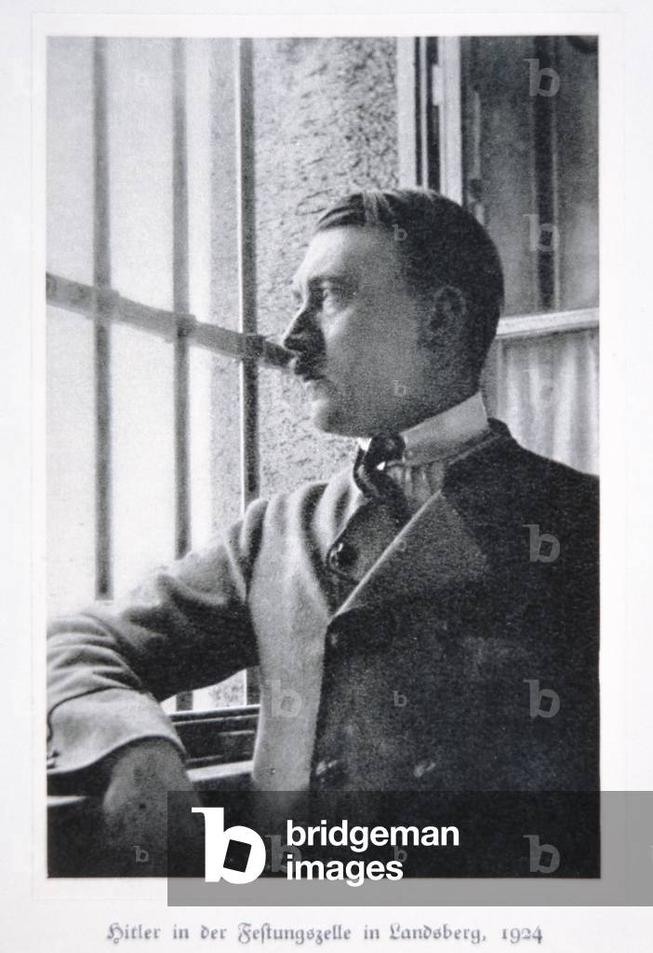
The attack on the Soviet Union, Operation Barbarossa, was driven by Hitler’s ideology, emphasizing expansion eastward. Yet it proved strategically flawed. The vast size and resource abundance of the USSR allowed it to absorb enormous losses and trade space for time. Soviet mobilization, aided by Allied lend-lease supplies, ensured continual reinforcement, which German intelligence failed to fully recognize.
German plans depended on quick victories and underestimated Soviet resilience. Delays caused by invading Yugoslavia and Greece postponed the advance toward Moscow, exposing German troops to the harsh Russian winter. After the defeat at Stalingrad, Germany lost the initiative in the East, and alternative strategies such as negotiating peace or allying with Eastern European partisans were never politically viable for the Nazis.
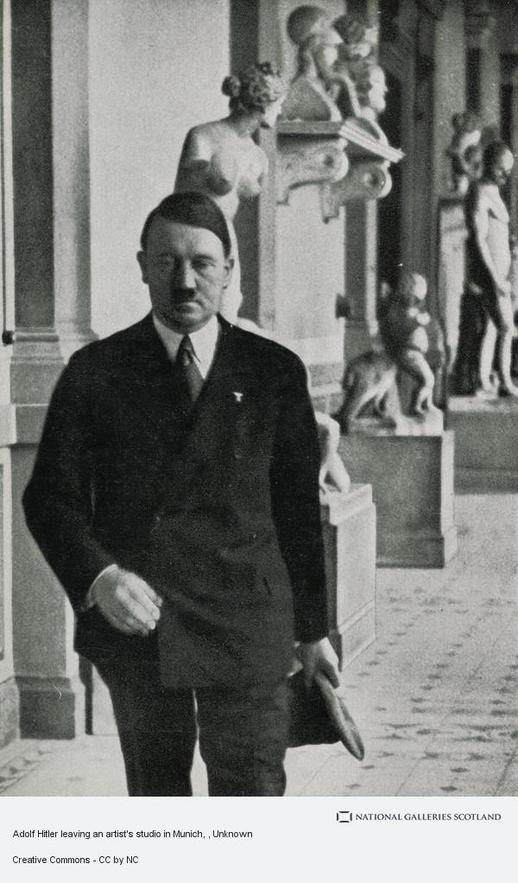
The entry of the United States into the war shifted the balance decisively. With immense industrial capacity, the US rapidly expanded production of weapons, vehicles, and raw materials to support the Allies. Even before formally entering the war, the US helped the Allies through lend-lease. The Manhattan Project aimed originally at Germany demonstrated the technological edge the Allies would multiply.
Strategically, Germany’s declaration of war on the US after Pearl Harbor ensured American direct involvement in both Europe and the Pacific theaters. Had Germany delayed this step, it might have prolonged the conflict or created opportunities in Africa and the Middle East, but the US’s overwhelming economic might was unlikely to be thwarted in the long term.
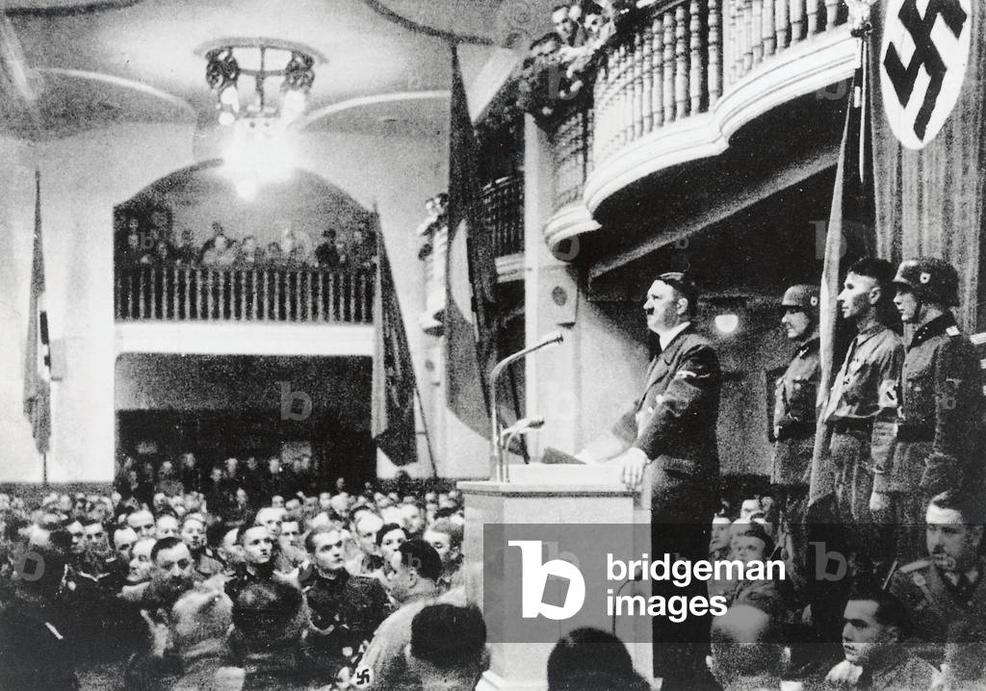
| Factor | Impact on German Victory |
|---|---|
| British resilience and evacuation at Dunkirk | Preservation of British forces prevented invasion success |
| Failed invasion of Britain | Allowed Britain to remain a base for Allied operations |
| Soviet vastness and resources | Impossible to decisively defeat USSR with available German forces |
| Delayed Barbarossa due to Balkan campaign | Exposed German troops to harsh winter |
| US industrial and military entry | Shifted power balance decisively against Germany |
| Economic model reliant on conquest | Unsustainable without continuous territorial expansion |
| Missed technological opportunities | Loss of potential nuclear and WMD advantages |
| Strategic errors | Misallocation of resources weakened key campaigns |
Germany’s economic model depended on expansion to maintain resources and war production, which was unsustainable in prolonged conflict. Access to critical raw materials like oil remained a constant limitation. Failure to control resource-rich areas such as the Black Sea region hurt German operations considerably.
Technological setbacks also played a role. The flight of key scientists to the West and Allied success in nuclear weapons development left Germany at a disadvantage. Had Germany pursued chemical weapons at key moments, such as in the Battle of Britain, or harnessed nuclear technology earlier, the war’s trajectory might have shifted. However, these options conflicted with other strategic and ideological constraints.
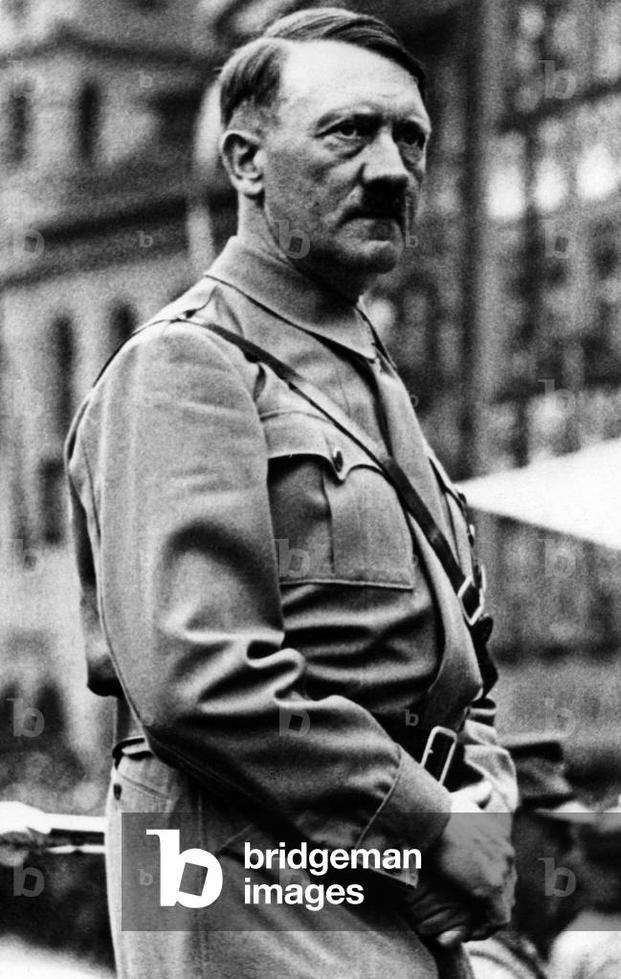
Finally, alternative diplomatic strategies might have shifted the war’s course. For instance, convincing the Soviets to attack British colonies could have fractured the Allied coalition. But Nazi ideology and mutual distrust prevented these possibilities.
Overall, Hitler’s Germany was never truly close to winning World War II. The combination of resilient Allies, vast Soviet resources, American industrial strength, and German strategic errors made ultimate victory impossible.

- Dunkirk saved Britain from defeat and invasion was never likely.
- Operation Barbarossa was strategically flawed and failed due to Soviet resilience.
- US economic and military power decisively tipped the war against Germany.
- German war economy required continuous conquest, unsustainable long-term.
- Strategic mistakes and missed opportunities limited German success.
- Allies’ unity and resources ensured Nazi Germany’s defeat despite early setbacks.
World War II: Was Hitler Actually Very Close to Winning the War?
Short answer: No, Hitler was not very close to winning World War II despite some popular beliefs. Although Nazi Germany had early successes and terrifying advances, multiple strategic, economic, and ideological factors nearly guaranteed their eventual defeat.
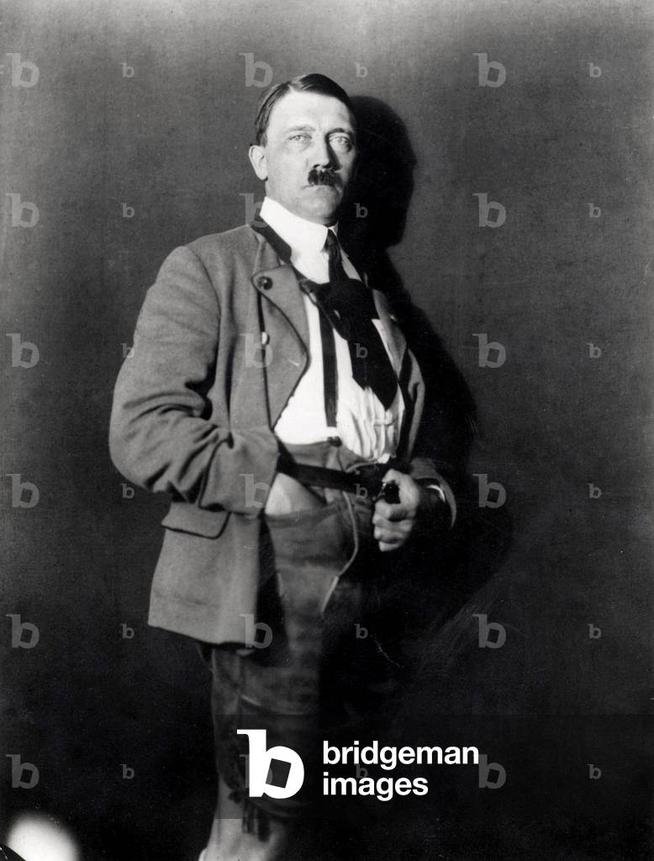
Let’s dive into this fascinating “what-if” scenario, peeling back history’s layers with facts, expert opinions, and some “almost happened” moments.
Could Hitler Have Forced England to Surrender?
The legendary British resolve is no joke, especially under Churchill’s fiery leadership. The idea that Germany might have won by forcing Britain to quit sounds tempting but doesn’t stand up well under scrutiny. Consider Dunkirk: Hitler’s shocking hesitation allowed around 350,000 Allied troops to escape, thanks to a heroic civilian flotilla mostly made up of fishing boats. Had this “miracle at Dunkirk” turned into a massacre, Hitler’s chances at invading Britain would improve—though an invasion itself was extremely unlikely.
Why? The Royal Navy’s dominance made supplying Axis forces in North Africa difficult. The Luftwaffe failing to decisively destroy the RAF (especially when targeting airfields) deflated German power in the skies. Simply put, an all-out air campaign, even if more strategically focused from the beginning, would not have smashed British defenses enough to cause surrender.
Hypothetically, if Hitler took Britain, urban guerrilla warfare and Britain’s defensive advantages would have thrown a wrench in traditional Blitzkrieg tactics. So even *then*, full German domination wasn’t guaranteed.
Invading Russia: The Eastern Front’s Fatal Flaw
Hitler’s ideological obsession with the East sealed his fate. His “Blut und Boden” doctrine demanded Aryan expansion into Soviet lands, but this war was beyond winnable in practical terms. Russia’s vast territory and enormous manpower allowed Stalin to trade space and time for survival. German intelligence severely underestimated Red Army strength, spotting only half its formations before the invasion.
Russian mobilization, peace with Japan, and sheer resources stacked the deck heavily against Germany. The Germans had a 4:1 tank advantage initially but still were swallowed by the massive Eastern Front force.
One interesting theory suggests that if Nazi Germany had tried to ally with Eastern European partisans instead of brutal occupation, they might have fractured the Soviet Union politically and ended the war sooner. However, this was ideologically impossible given Nazi racial policies.
After Stalingrad, some historians argue Germany could have pushed for a negotiated peace, locking in territorial gains by threatening costly continued fighting. But Hitler’s refusal to compromise ended such possibilities.
Additionally, delaying Operation Barbarossa by six weeks to invade Greece and Yugoslavia doomed the advance toward Moscow. Winter set in earlier than expected, halting the German push prematurely.
Was US Involvement the Death Knell for Germany?
The United States played an overwhelming role in crushing Nazi ambitions. Although some American isolationist and even pro-German sympathies existed, the government’s bias toward the Allied cause was firm. Anti-submarine patrols and early lend-lease support for Britain and the USSR showed commitment well before Pearl Harbor.
The US industrial powerhouse started fully mobilizing only after 1943’s Sportpalast speech—meaning Germany had years of trying to win before American factories ran at wartime speed. Even then, the sheer production capacity was staggering: planes, tanks, trucks, and supplies flooded the European and Pacific theaters.
The Soviets benefited greatly from Lend-Lease trucks, trains, and supplies, allowing them to focus entirely on weapons production and troop deployment.
Another little-known fact: the Manhattan Project initially aimed to bomb Germany. Had nuclear weapons not developed or been delayed, the war’s outcome could have stretched or changed dramatically.
Hitler’s decision to declare war on the US after Pearl Harbor sealed the deal against Germany. It wasn’t guaranteed the US would enter war in Europe if Japan was the sole aggressor. Had America concentrated on the Pacific, British forces might have held Africa longer, and logistics aid to the USSR would have dropped. Meaning? A potential German victory in North Africa and disruption of British supply lines.
Economic and Strategic Shortcomings of the Nazi War Machine
One problem Hitler’s war effort had was its unsustainable economy—it depended heavily on constant territorial conquest. Without expanding to grab resources, Germany’s war machine couldn’t keep running at full speed.
Access to oil was a deciding factor. The US and USSR’s larger oil supplies translated directly into fuel for tanks, trucks, planes, and ships. Germany’s failure to secure Black Sea oil after Stalingrad practically doomed them.
Technological edge could have shifted the war’s balance. Nazi Germany developed jet planes, ballistic missiles, and had research underway for nuclear weapons. If Hitler had allowed German scientists to fully exploit these technologies instead of losing them to Western Allies, the “what if” becomes chilling. Europe and parts of Asia and Africa could have fallen under German control, with formidable defensive power against counterattacks.
On the flip side, Germany’s decision to ignore chemical weapons in the Battle of Britain lost a potential chance to force an invasion by using Tabun and Sarin gases, then the deadliest chemical agents.
The strategic bombing of British cities, rather than strictly targeting RAF airfields, was a massive error. It cost Germany pilots and initiative they could have deployed elsewhere, such as supporting Rommel’s campaigns in North Africa.
Had the Germans focused on Malta and the Suez Canal, they might have severed Britain’s lifeline to India and the rest of its empire. That would have been a direct blow to British war production and morale.
Could Enlisting the Soviets Against the British Have Worked?
One of the most intriguing alternate paths includes Germany convincing the USSR to declare war on Britain. Historically, British and Soviet relations flirted with conflict. Stalin had territorial ambitions and once prepared to let Britain keep Greece democratic after the war, signaling possible bargains.
Had Ribbentrop succeeded in shifting Soviet focus to Persia and India, the British Empire’s cornerstone could have crumbled, leaving Germany’s position in Europe far more secure.
The Bottom Line: Close, But No Cigar
Hitler never came as close to winning World War II as is often imagined. From the miraculous evacuation at Dunkirk, insurmountable logistic and naval challenges preventing an invasion of Britain, to the vast and resilient Soviet war machine, the odds were stacked unfavorably against the Third Reich.
Strategic blunders—including the ill-advised invasion of the Soviet Union before securing Britain, delaying Barbarossa for the Balkans, and declaring war on the US—sealed Germany’s fate.
More so, Nazi ideology restricted pragmatic alliances and political maneuvers that might have saved Germany from catastrophic attrition.
Finally, the overwhelming economic and industrial power of the Allies, especially the USA and USSR, ensured Germany couldn’t outproduce or outlast them, no matter technological advances or tactical brilliance in the field.
“…the only way the Nazi’s might have avoided defeat was through radical strategic and ideological shifts they never permitted themselves to make.”
So, why does conventional wisdom sometimes say Hitler was *close*?
Part of it is the dramatic early victories: Blitzkrieg triumphs in Poland and France stunned the world. Movies, books, and lore amplify “near misses” because they create tension and drama. World War II was a cataclysm shaped by many pivotal moments, but these near triumphs don’t reflect the overall strategic reality.
History loves its “edge of collapse” stories, but the sweet truth is victory for Hitler was never truly within reach after 1940. Missteps, ideological rigidity, and the unbeatable strength of his enemies kept him from crossing that line.
What Can We Learn from This?
- War outcomes are complex. Tactical brilliance can only go so far without solid logistics and political sense.
- Ideology can blind. Hitler’s refusal to negotiate with the USSR or ally with partisans helped doom Germany.
- Economic strength matters. No matter the tech, industrial capacity and resource access decide wars.
- Small decisions ripple. The “miracle at Dunkirk” wasn’t just luck—it fundamentally changed the war’s direction.
So, next time someone says Hitler nearly won World War II, you can confidently unpack the truth: it was a blend of his reckless ambition, Allied resilience, and a series of unavoidable realities that shaped history.
Was Hitler close to forcing Britain to surrender early in the war?
No. Despite intense bombing and U-Boat attacks, Britain under Churchill never showed signs of surrender. The RAF remained strong, and a German invasion was not feasible due to Royal Navy dominance and logistic limits. Dunkirk allowed Britain to retain much of its army.
Could Germany have won the war by focusing differently on the Soviet Union?
Delaying Barbarossa for other invasions cost Germany timing. The vast Soviet resources and manpower made victory unlikely. Even after Stalingrad, Germany might have forced concessions, but ideological goals stopped alliances with partisans or peace talks.
Did the United States’ entry into the war guarantee Germany’s defeat?
US industrial power and lend-lease supply to the Allies heavily tilted the balance. The US also provided critical equipment to the Soviets and had plans for nuclear weapons targeting Germany. These factors made German victory highly improbable after 1941.
Was the failure at Dunkirk a key turning point that prevented a German victory?
Dunkirk’s evacuation saved about 350,000 troops. Losing them would have left Britain vulnerable to invasion. However, urban resistance might have limited German Blitzkrieg success, meaning a British defeat was not guaranteed even then.
Could Germany have negotiated peace successfully with the Soviet Union after major battles?
After Stalingrad, Germany held deep inside Soviet territory and might have forced peace with demands. Still, Nazi ideology and the brutal continuation of fighting meant no serious negotiations occurred, missing a potential chance to limit losses.
